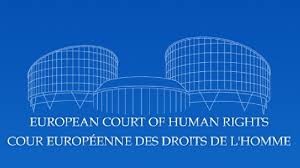The SUEPO, the biggest trade union at the European Patent Organisation, filed a complaint against The Netherlands before the European Court of Human Rights (ECHR) on 8 May 2017. According to the SUEPO, as host to one of the main offices of the European Patent Office, The Netherlands should have acted to end the breach of fundamental rights at the organisation.
 In a report published on its website today, the SUEPO states: ‘…to defend the interests of its members when attacked by President Battistelli, SUEPO sought protection from the Dutch courts in the form of an injunction. An injunction is meant to prevent a violation of rights likely (if not certain) to cause irreparable damage. Disappointingly, the Supreme Court of the Netherlands upheld the EPO’s immunity.
In a report published on its website today, the SUEPO states: ‘…to defend the interests of its members when attacked by President Battistelli, SUEPO sought protection from the Dutch courts in the form of an injunction. An injunction is meant to prevent a violation of rights likely (if not certain) to cause irreparable damage. Disappointingly, the Supreme Court of the Netherlands upheld the EPO’s immunity.
A host state has a heavy duty of care. On the one hand, it must take reasonable steps to safeguard the immunity of an international organisation, when such immunity is necessary for the lawful operations of the organisation. On the other hand, the host state must see to it that all individuals within its jurisdiction have effective means to protect their rights when menaced.
When the legal system applicable to an international organisation does not provide for protection in the form of an injunction, which is essential to prevent irreparable damage, and even worse when it is virtually indisputable that the organisation is violating rights, the host state has a serious difficulty. In our opinion, it has only two options: either to lift the immunity of the organisation for the benefit of a party aggrieved, or to take itself action against the rogue organisation by resorting to international arbitration (…).
Being unwilling to do either, in our opinion The Netherlands have failed (so far) to discharge their duty of care, thereby allowing a breach of fundamental rights on their soil and de facto condoning, if not endorsing, the EPO’s abuses.’
The SUEPO statement refers to a decision of the Dutch Supreme Court of 20 January 2017, in which the Court ruled that the European Patent Office could invoke its immunity from jurisdiction of Dutch courts in its conflict with the EPO trade unions. Despite the ruling, pressure on EPO president Benoit Battistelli, who has been widely criticized for creating a climate of fear at the EPO, intimidating staff, dismissing union leaders and pushing through controversial reforms of the Boards of Appeal, remained high. In February, the Dutch minister of Foreign Affairs, Bert Koenders, wrote to parliament that he had ‘informed Mr Minnoye [a vice-president of the EPO, ed.] that the internal unrest has been going on for too long and that the situation now needs to improve quickly. (…)’
In several other EPO member states – France, Germany, for instance – and at the European Union, the disastrous social climate at the EPO has been on the agenda repeatedly as well. Last month, the USF, the largest federation of Unions of the Public Service wrote a letter to the members of the European Parliament, stating: ‘Countless reports in the media about dismissed staff representatives, other scandals and a total loss of trust of the staff in the current EPO president, Mr. Battistelli, are evidence of the seriousness of the situation at the EPO.’ Recently, in a series of articles on this blog (I, II, III, IV), the negative consequences of the EPO policy for patent quality were questioned as well.
Crucially however, Battistelli still seems to have support of enough members of the EPO’s supervisory Administrative Council, which could have taken more measures against the authoritarian president than it has been willing to.
The complaint before the ECHR is the latest attempt to do something about the EPO crisis. In the Dutch newspaper Nederlands Dagblad, lawyer Liesbeth Zegveld explained it is directed against The Netherlands, ‘because it has actively promoted upholding the EPO’s immunity’. According to Zegveld, the Dutch government has a diplomatic interest in doing this, ‘as it hopes for international organizations to settle in the Netherlands’. It wasn’t immediately clear when a decision can be expected from ECHR, but it will probably take quite some time. A brochure of the court of 2012 indicates the aim is to finalize cases within three years.
For regular updates, subscribe to this blog and the free Kluwer IP Law Newsletter.
_____________________________
To make sure you do not miss out on regular updates from the Kluwer Patent Blog, please subscribe here.
Kluwer IP Law
The 2022 Future Ready Lawyer survey showed that 79% of lawyers think that the importance of legal technology will increase for next year. With Kluwer IP Law you can navigate the increasingly global practice of IP law with specialized, local and cross-border information and tools from every preferred location. Are you, as an IP professional, ready for the future?
Learn how Kluwer IP Law can support you.


